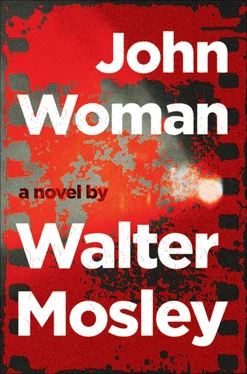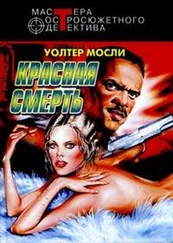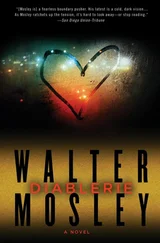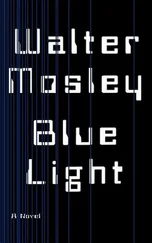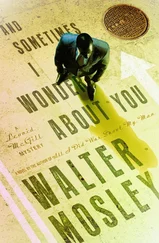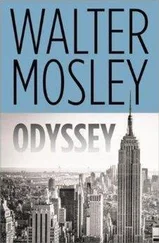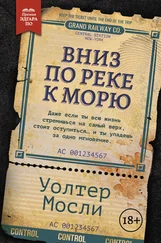At 6:51 his landline rang.
“Hello?”
“Hello, John.”
“Marte?”
“You sound surprised.”
“No, no. I just... It’s nothing. What can I do for you?”
“Colin was called away to Chicago overnight,” she said. “And I don’t want to eat alone. What are you and Rosa doing?”
“My mother had to go to LA for a few days.”
“Oh. Then you’re alone too. Why don’t we meet at that French restaurant in town?”
“La Reine?”
“That’s it. Seven-thirty?”
“So what you’re saying is that you have been studying history your entire life,” Marte Crespo-Luckfeld said after ordering frogs’ legs as an appetizer and mushroom pasta for the main.
Marte was a handsome woman in her late thirties, with delicate russet-color skin, and eyes a shocking crystalline blue. Her face was long and sympathetic while her mouth was set with determination that John had not remembered from their previous meetings.
“I guess,” he said, “at least from the time I could read long words.”
“But there seems to be something missing.”
“What do you mean?”
Marte gazed at him. In her eyes, on her lips there seemed to be lodged a question. “Colin has told you that he... we belong to a unique and very confidential organization,” she stated.
John became very still.
She smiled and nodded.
“Yes,” she said. “You are right not to answer. The Platinum Path is destined for a glorious future but with this ambition come danger and death.”
At that moment a waiter came with her frogs’ legs and John’s onion soup.
When the server was gone she said, “You are on the radar of the senior officials.”
“Why?”
“They need young and vital leadership: men and women who are willing to act regardless of law, love or outmoded ethics.”
“And they think I’m lawless, loveless and amoral?”
“Be prepared to answer the call.”
John sat up that night thinking about people watching him from synthetic shadows.
“Was that a threat?” he asked the walls and then fell fast asleep.
In the morning John concentrated on the talk he was slated to deliver. Truth, for the historian, was like sand: seemingly whole from a distance but on closer examination it broke down into particles so fine that their forms and natures, not to mention their incalculable number, were beyond human comprehension.
He ascended the stage at Deck Rec auditorium wondering at the previous hour or so: the shower and the dark blue suit over a yellow T, the long walk in strong sun and the hot wind against him. On the way he’d said hello to students and faculty members, strangers and the gardener — Ron Underhill.
“Professor Woman.”
“Mr. Underhill.”
“How are you today, sir?”
“Going to give a talk about how the architecture of human certainty is built on graveyard soil.”
The older man smiled and nodded. “I heard about that,” he said.
“You did?”
“They put out a weekly announcement so the staff can avail themselves of what the school has to offer.”
“I didn’t realize that,” John said.
Underhill gave John a big smile. One of his two front teeth was missing.
Looking out over the mostly full auditorium John thought about Underhill. He was a bright man and completely, it seemed, his own.
Carlinda was in the third row in the rightmost tier of pews. Seeing her John decided on the construction of the talk he’d give.
President Luckfeld and Marte were front and center. Colin nodded at John and smiled. Marte was smiling too.
The digital clock on the back wall read 1:58. John felt the sweat from the hot sun turn cold under the air-conditioning. The IT specialist Talia Friendly, wearing khaki overalls, gave him a thumbs-up.
The spectators were still greeting each other when John said aloud, “We don’t really learn from history.”
People stopped their talking and dropped into seats.
“Take the thumbs-up gesture,” he said making the sign with his left hand. “In ancient Rome, at the gladiatorial games in the Colosseum and Circus, that gesture was a death sentence for the loser. It meant to give an upthrust with the sword and end his life. Thumbs-down meant to sheath your sword and let the conquered live. This is as close as we can get to a fact. Thumbs-up is bad, thumbs-down is good. But will you, now that you know the truth, change the way you sign? Of course not. You’re not communicating with Latin sign language in twenty-first-century America. You know what the gestures mean today and that’s that. We know what is true and will die to defend that truth.
“History is most similar to a feud,” he said. “There are sides. One family says that it was started by the murder of an uncle or the theft of some property. The other clan identifies an earlier insult; and so on. Natural law, morality and God himself seem to take sides in the conflict. From this come decades, sometimes centuries, of bloodshed and animosity, misinformation and the steady deterioration of truth.
“The historian has to choose sides. He, or she, makes a choice as to what sequence of events and intentions to highlight. Even while affecting objectivity the historian has secretly, maybe even unconsciously, taken sides. This is the human condition and, whatever else we might achieve, we cannot abandon it.”
John kept on talking even though his mind wandered from the lecture. He was thinking of his gone-again mother and Marte’s warning. He wondered if Carlinda would see the comparison between technique and nature and if knowledge, like Buddha said and Socrates said, was often the enemy of awareness.
He did not see the three men, led by Officer Hernandez of the Granville police, go around Talia Friendly as they approached the stage.
When they came near, John wondered why. Had they found some proof concerning the Trash Can Lecture?
Maybe this part of the story is over, he thought.
“Cornelius Jones,” Hernandez said, “I am arresting you until such time that your case with the state of New York has been resolved. Please turn around, sir.”
After photographs and fingerprints John was put into a holding cell in Maricopa County Jail. There he had seven cellmates: two white, the others various shades of brown.
Two of the darker men, a maybe-Mexican and a man the color of John’s father, wore fancy but disheveled suits and seemed to be sick. They sat side by side on the floor next to a small cot lolled upon by a very large dark brown man.
A friendly American Indian asked, “What they got you on, brother?”
“Suspicion of murder,” John said. “In New York.”
“Andrew.”
“John.”
Andrew looked to be somewhere in his forties with ruddy red-brown skin that had been much in the sun. His dark eyes seemed to be searching for something — on the floor, in John’s eyes, outside the cell bars.
“I took three sheep from a dude,” he said, “but they called it armed robbery just because I had a knife.”
“You had the knife in your hand?”
Andrew smiled and offered John his hand.
Andrew said, “No. It was in a sheath on my belt. I always carry a knife like that. Not a weapon, it’s a tool.”
Christopher Minor, one of the white prisoners, was introduced by Andrew to John. Minor was in his twenties with long brown hair that was severely matted. Minor was a known drug smuggler. His crime was that there were traces of marijuana in the trunk of his car; that and one drop of blood.
“Fuckin’ cops said that they’re gonna test that DNA against ever’ open case of assault and murder in Arizona,” Christopher said. “I told ’em okay but the first blood they should test is mine.”
Читать дальше
